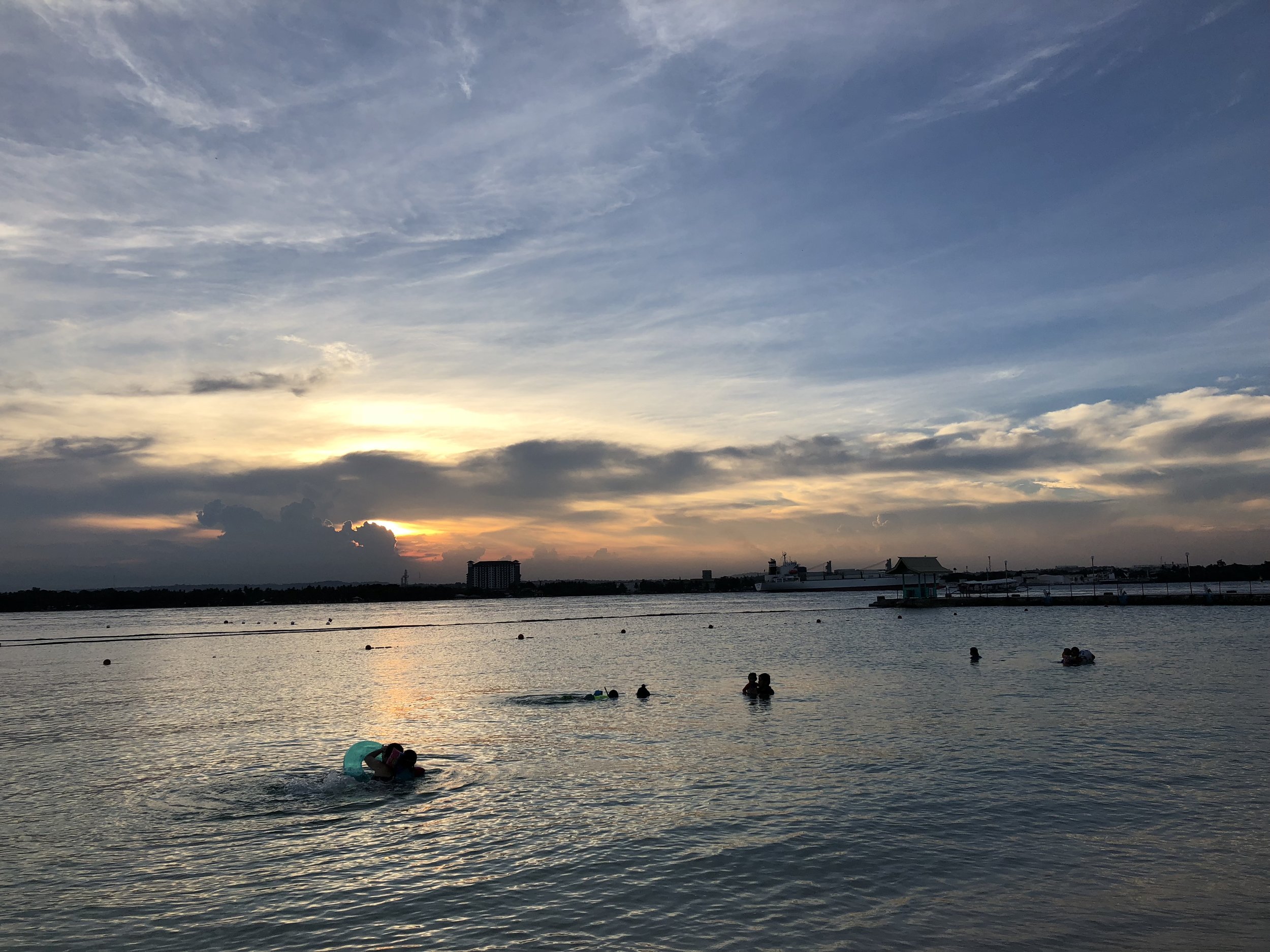The Dream
Bea Mendoza
Mama called me the other night, and she asked how I was but I knew that wasn’t what she wanted to say. It was a while before she was honest.
“The cathedral that I was baptized in, the one in Jolo,” she said, “was bombed. By the rebels. So many dead… Our neighbors were there. There were kids.”
When Mama talks of Jolo, it is with the jigsaw memory of a four-year-old. She talks about airplanes and shushing her brother, an infant in her toddler arms. She talks about wondering where her toys went. She talks about their lives being spared because the gunman recognized my abuela from when she taught him English, or maybe it was math.
Aftermath of the Jolo Cathedral Bombing
In January 2019, a bombing of a Jolo cathedral in the Philippines killed twenty people and injured over one hundred.
My mother was born in Jolo, but she will never go back. Taken quickly away, she barely talks about what happened—what is still happening: the militant rebels, killing for a religion that would never reward them for it; Islamic state allies kidnapping, beheading, bombing.
Mama sent me a scan of a photo from her baptism. The black and white was grainy, and my mother was so small, held tightly by the godparents she would grow up without. She said, “The dream has always been to be able to go back to the island of my birth.”
We were in the car, just the two of us, when she told me her earliest memory.
“They were taking people off of the island by boat, and there was a big wall on the side of the boat—a big net to climb aboard—and they called names out, and they kept calling us, but I was too small to climb… And I was carrying your Tito Ernie… Your abuelo was trying to find a way to get us out.”
Abuelo, an engineer for the island’s electric company, was being held by the rebels for his expertise. Whenever he talks about the past, there is only death and tears welling up in his face, so I try to talk about the present.
But my grandmother, at her and Abuelo’s fiftieth wedding anniversary, talked about how the whole of Jolo went quiet when they got married. A Muslim girl and a Catholic boy, falling in love.
My mother said they took a helicopter to Cebu, and that it was OK, that maybe their house will still be there when she can go back, that maybe it’s frozen in time and waiting for their return. Mama doesn’t entertain the idea of going back to Jolo much, and I wish that neither of us were afraid of the past, because aren’t we products of the past? Isn’t she what she is because of what she was? And aren’t I what I am because of her?
My father says he fell in love with Mama the first time they met. They were twelve, and she was the new kid from Cebu, the new kid that didn’t speak Tagalog, the new kid who stared at her shoes when she stood at the front of the class.
Mama says my father was a part of some clique she didn’t think she could touch—she, with her frizzy curls, gap teeth, sweaty palms, no Tagalog (but talk to her in Visayan, Cebuano, Spanish, or English, and you’re golden and she’s comfortable). They ended up dating at fourteen, but I don’t know how, and I don’t know how much he knew about Jolo, or if she would even let him know.
Mama talks about her past in the hectic way, in fragments that have no adjoining edges. She alludes sometimes to growing without roots, preferring to be on the move for fear of what will happen if she is too comfortable. We don’t really talk about it.
She’s never called herself a refugee. I don’t know if that’s any part of her personal identity, but once she asked me if I thought it’d be good for her to document what happened— even if it’s for no one but her—because the memories will only haze and fade. (I said yes.) She talks slow and soft when she remembers, like she is four years old and Jolo is quiet, and then it isn’t, and instead she is fifty years old in the car with her eldest daughter, driving to their condo in California, and she is trying to paint a picture of a place that neither are certain exists, trying to remember the person she was before, peering into a past life.
She never finishes her stories. Puts them on pause. Gets willfully distracted. Shakes her head to come back to the present. Dismisses the topic she brought up just to ask me how I’m doing.
Admittance of the past takes time, and time itself is so dangerously undefined as we spin in circles in attempt to make some sense of what happened, so we sit in silence for the rest of the ride home, and she speaks when she is ready.
Paradise Island, Philippines
The author took this photograph the last time she visited the Philippines with her family.

